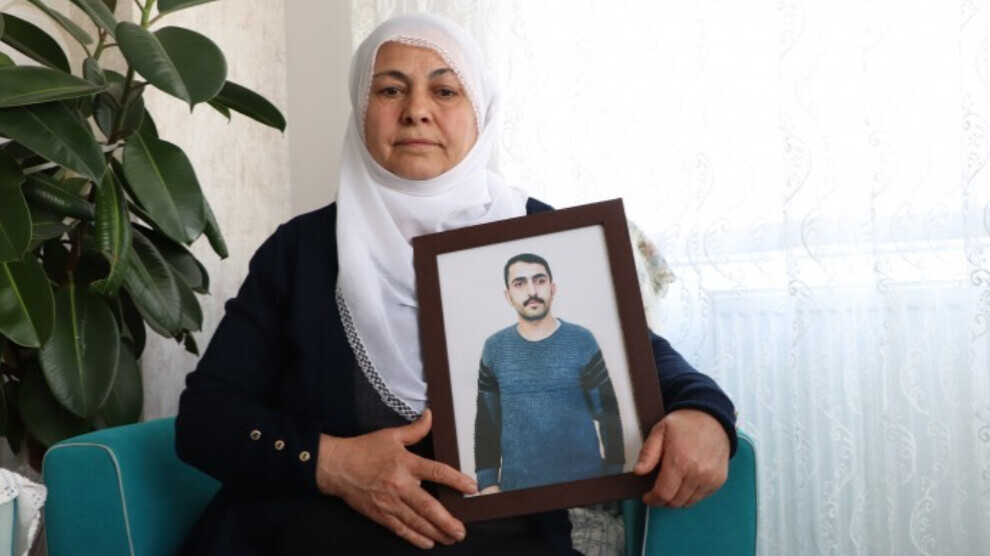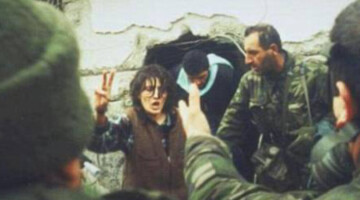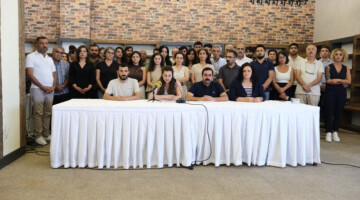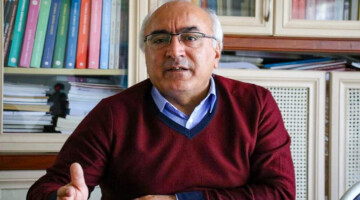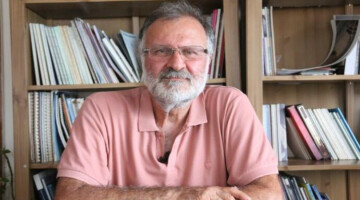The seriously ill political prisoner Civan Boltan is subjected to one harassment after another. Despite the fact that the European Court of Human Rights (ECHR) judged his continued detention to be a "violation of rights" and that there is a medical certificate of incapacity, he remains in prison. This has resulted in an endless chain of further serious rights violations that cannot be justified. Most recently, the Kurd has had his clothes and blankets confiscated, the reasons for which are completely unknown.
"The treatment of my son is undoubtedly purposefully inhumane and thus equivalent to torture," is how mother Nazime Boltan describes the treatment of Civan Boltan. The 31-year-old has been in detention since 2012. That year, he was sentenced to an aggravated life sentence plus an additional 95 years and four months in prison on the basis of anti-terror legislation and "acting in a manner hostile to the state" in connection with his membership of the Kurdish guerrillas. Before Boltan was imprisoned as a guerrilla, he tried to blow himself up with a hand grenade. In the process, his right arm was shredded, and he also lost the sight in his left eye.
Around seventy shrapnel pierced Boltan's body, the largest still lodged in his skull today. When soldiers discovered him, he was presumed dead. After it was determined in a hospital that he was still alive, massive blows from military personnel resulted in severe injuries to his remaining eye, of which only 30 per cent is intact today. His healthy arm was broken in several places. Probably because of this, he suffers from secondary Raynaud's syndrome today.
Raynaud's syndrome, also known as "corpse finger" or "white finger disease", is caused by an overreaction of the nerves to cold. Usually, there is a serious underlying disease, such as inflammatory rheumatism or connective tissue diseases, neurological diseases, nerve inflammation or damage can be behind it. In these cases, the recurring circulatory disorders can lead to irreparable vascular diseases and cells can die. People with the disease suffer from insensitivity, numbness, discolouration of the affected areas and pain as soon as they come into contact with the cold - for example, when they come into contact with cold air or water. The attacks usually last no longer than half an hour, but the more frequently the body is exposed to the cold, the stronger the overreaction.
Notorious F-type prison Bolu
"Kurdish society and especially that part whose relatives are in prison know what it means for political prisoners to be imprisoned in Bolu," stresses Nazime Boltan. The maximum-security type F prison in the north-western province of Bolu is notorious for torture and inhumane prison conditions, especially in the case of "PKK prisoners". In summer the heating is turned up, in winter the cooling system runs. The fact that now, when it is getting colder, Civan Boltan's sleeping blankets are confiscated in addition to his clothes on the orders of the prison administration is nothing other than deliberate bodily harm, says mother Nazime Boltan. The Kurdish woman regularly takes part in the "Vigil for Justice" in Amed (tr. Diyarbakir), an initiative launched in November 2021 by relatives of political prisoners who want to make the extreme repression and constant human rights violations in the prisons visible and fight for compliance with legal standards.
"Our children are oppressed"
"They torture the prisoners wherever they can," says Nazime Boltan, referring to the situation behind Turkish prison walls. "Our children are oppressed. There is no justice for them. Civan is sick and unable to care for himself without the support of his fellow prisoners. Even when it rains, he gets attacks, his fingers turn white. If he is now left without clothes and blankets, his already serious health situation will worsen," Boltan fears and complains that letters from her son are also confiscated by the prison administration. "It is not only my son who is a victim of this hostile treatment. There are countless sick political prisoners who are affected. Therefore, we call on all their relatives to join our action. Our demand is the release of the sick prisoners and their treatment in freedom. The families of the sick prisoners must support them. As long as we are alive, we will champion the cause of our children."

